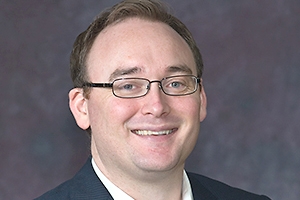Research
Visiting Home: How a Sabbatical in the UK Became Multiple Projects

Bill Davies
For Dr. Bill Davies, a four-month sabbatical wasn’t just a chance to soak up the familiar scenery of his native United Kingdom after spending five years as an expat professor in the United States; it was a rare opportunity to surround himself — quite literally — with his studies. And for once in his career, he wouldn’t be the only guy in the country studying the legal history of the constitution of the European Union.
“Meeting people in the same scenario and doing the same research you are is invigorating and exciting and refreshing — you just can’t replicate that — because I’m one of only a very few people in the United States doing this kind of research,” Davies said. “There’s one other guy. He’s in Connecticut, I think.”
If Dr. Davies’s area of expertise sounds unusual, that’s because it is. The assistant professor in the Department of Justice, Law and Society occupies a specific niche in academia: he studies the transnational legal structures of the European Union. And last semester, he spent four months on sabbatical traversing Europe, interviewing judges and diplomats, and poring over legal documents in Britain’s National Archive — all while putting the finishing touches on his first book, Resisting the European Court of Justice: West Germany’s Confrontation with European Law 1949-1979.
“In my research I look at the relationship between the ‘federal’ European court and the national courts in the European Union,” Davies said. “I just finished a book about the relationship between German courts and the Court of Justice [of the European Union], and wanted to move onto a different national case study — Britain, where I’m from.”
“The EU is constantly in some kind of crisis — anyone who studies it kind of rolls their eyes when they hear it’s in crisis because it has been since it was created,” he continued. “It’s mainly because of the legal system that the whole thing works and sticks together.”
Davies was granted a visiting professorship through the Leverhulme Trust, a charitable organization that supports research and education across all academic disciplines, and traveled to the United Kingdom in January. He spent the majority of his time at the Bracton Centre for Legal History Research at the University of Exeter, intermittently taking trips to the National Archives in London, and to the University of Edinburgh in Scotland.
But even Davies himself was surprised by just how fruitful his time in Europe turned out to be. In addition to gathering information about the complicated relationship between Britain and the European Union — “There’s a paradox when you look at Britain because it’s a very reluctant member of the EU,” Davies explained, “the public doesn’t like it, the elite doesn’t like it, but it makes Britain much richer” — he stumbled across a treasure trove of unexpected information that he will be able to mine as a rich vein for papers, projects, and quite possibly, more books.
“I knew I wanted to write about Britain,” Davies said, “but two exciting things happened that overtook everything else.”
Davies was allowed into the Legal Service of the European Commission’s archive in Brussels, which is notoriously difficult to access, and typically closed to researchers and scholars.
Davies said, “A colleague and I managed to go for three days, writing and copying like mad. I can’t express the excitement — it was like The Da Vinci Code, finding a map behind a wall or something. And just awesome.”
His good fortune didn’t stop there. Towards the end of his sabbatical, he managed to track down the family of Walter Much, one of the early General Directors of the European Commission Legal Services. Davies was invited to Much's home near Luxembourg to sift through his personal archive containing thousands of previously unread papers pertaining to the European legal system. Davies now plans to prepare an academic paper based on these letters.
“Apart from the collectors themselves, I am the only person ever to see many of these documents,” Davies said. “I don’t have enough hours to do all the processing and writing I want to do from this trip. As the Americans say: I really hit the mother lode.”

